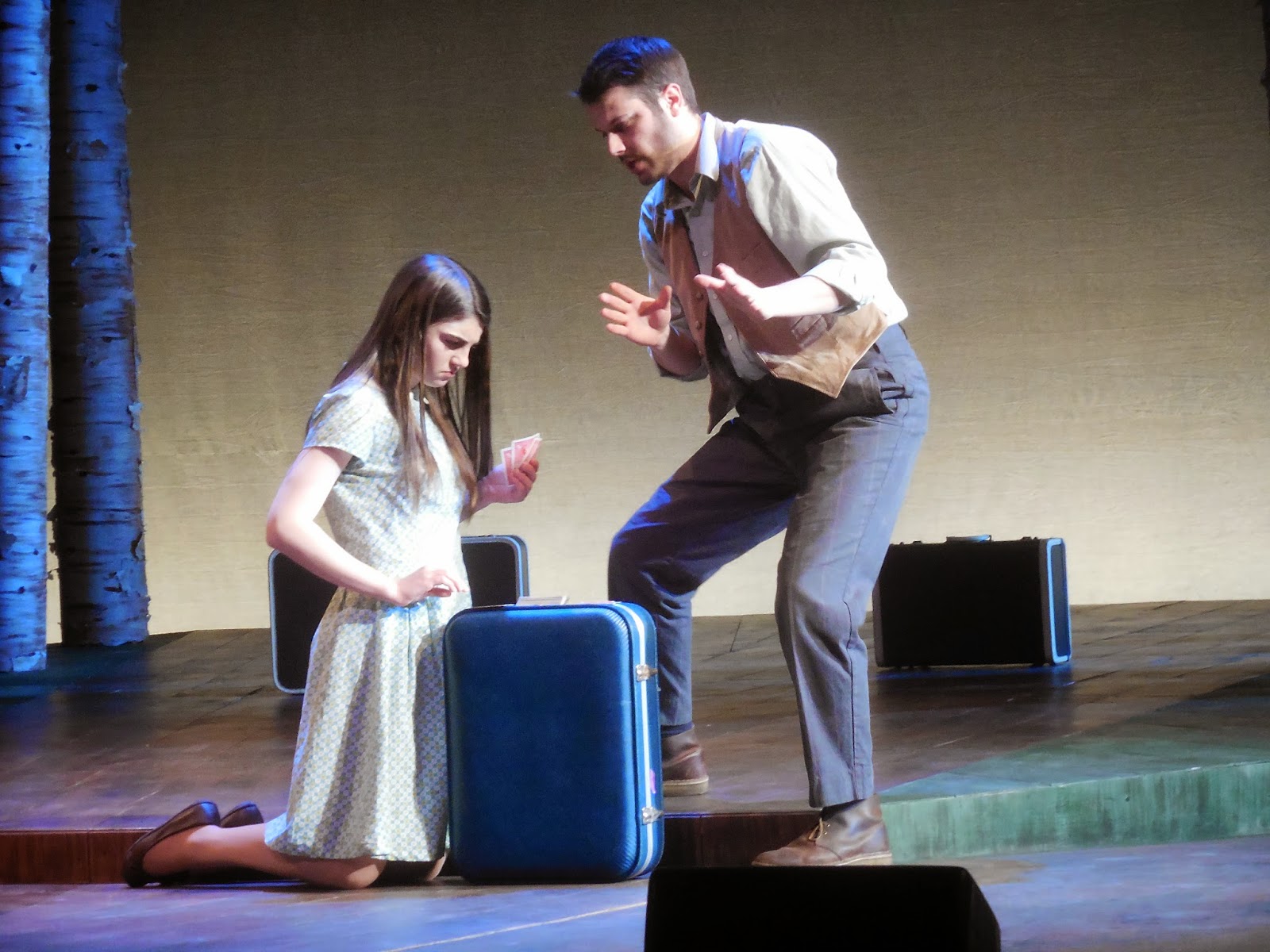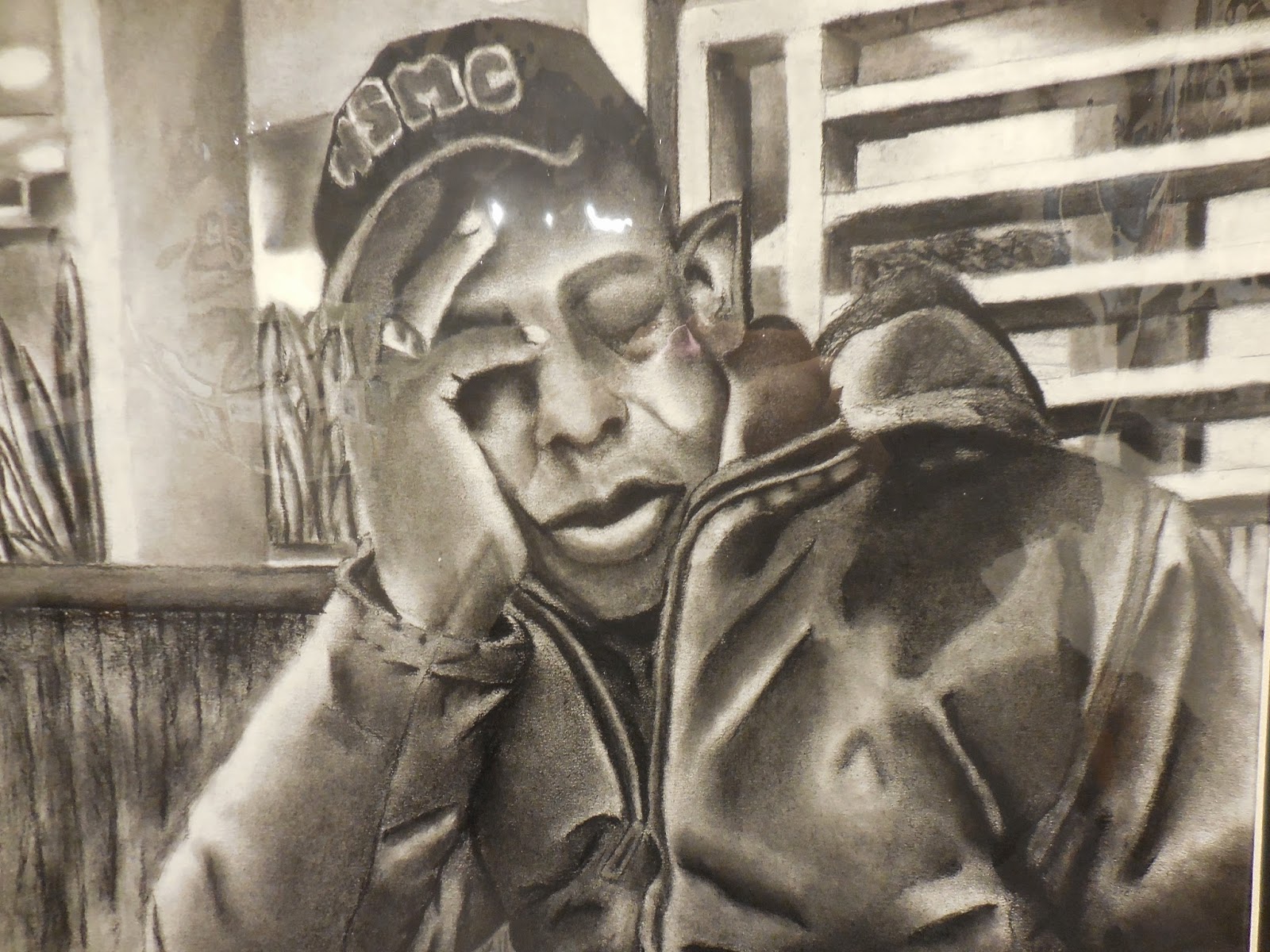•A brief answer
to a friend of this blog.
In
May of this year, widely-respected New York Times
columnist, David Brooks (a cultural Jew), told Christianity Today, “We need to start talking about sin and
righteousness.” In his study of American culture, he noted, “in the late 1940s
. . . There were tons of best-selling books, and some movies, arguing that the
notion of human sinfulness was outdated, and that we should embrace the idea
that we’re really wonderful.” [1]
Along
those lines, a friend of this blog has engaged in a quest to gain a better
knowledge of sin and how it affects our thinking. She is theologically astute and framed her
question to me in technical terms. She asked, “How does ‘deprivation’ (original
sin) affect the ‘sensus divinitatis’ (people’s awareness of God)?” Here is my
answer and the answer will end up broadening the question. [2]
• How does sin
affect the human mind?
“Deprivation”
refers to the change in nature that Adam and Eve experienced when they, our
first parents, sinned against God. This “deprivation” involves (1) loss of
original holiness and justice and (2) a corruption of nature whereby they
became slaves of sin. However, they retained their created-ness in the image of
God. They were still thinking, feeling, perceiving, moral, esthetic beings. And to their
posterity they passed on both created-ness (characterized by human nobleness)
and corruption (characterized by human cruelty).
Romans
1:19-20 teaches that, from God’s creation, humans know God and understand his
existence and eternal power – they have “sensus divinitatis,” an awareness of the
Deity. The question arises, how does this corruption of nature by sin affect
the human mind in its awareness of God? Scripture gives a brief answer without
the nuances that a theological or philosophical discussion would have.
Romans
1:21 “For although they [humans] knew God, they did not honor him as God or
give thanks to him, but they became futile in their thinking, and their foolish
hearts were darkened.” This verse summarizes several key teachings. (1) The
choice to dishonor God and not give him thanks (i.e. to love self or created
things more than or rather than God) is the root cause of foolish thinking,
knowing, and believing. Worship drives worldview and one’s basic life creed.
(2) Sin causes futility in thinking: you really think you know the truth about
reality and especially about Cosmic Reality. But actually you became stymied
and come to false conclusions, not because you are human (made in the image of
God) but because you are sinful (the descendent of Adam and Eve). And (3) moral
darkness clouds the thinking so that a person thinks, feels, and does things
that dishonor God. You think your thoughts and engage in your reasonings. But you
rebel against God as supreme ruler and judge and instead make yourself as the
measure of all things. As a result, your thoughts become subtly distorted.
Titus
1:15-16 “To the pure, all things are pure, but to the defiled and unbelieving,
nothing is pure; but both their minds and their consciences are defiled. They
profess to know God, but they deny him by their works. They are detestable,
disobedient, unfit for any good work.” (4) Moral darkness can not only cloud
the mind, but when wickedness becomes a pattern of life, the human mind can
produce things are just plain detestable and unfit for other people to hear or
read. Your pompousness produces impurity of thought.
Elsewhere,
the Bible further describes the condition of our minds under sin [3]. Corrupted
by sin, the human mind can be:
confused
(Deuteronomy 28:20)
anxious, closed
(Job 17:3–4)
evil, restless
(Ecclesiastes 2:21–23)
rash, deluded
(Leviticus 5:4; Isaiah 32:4 NIV)
troubled (2
Kings 6:11)
depraved (1
Timothy 6:5)
sinful (Romans
8:7 NIV)
dull (2
Corinthians 3:14 NIV)
blinded (2
Corinthians 4:4)
corrupt (2
Timothy 3:8)
• How may I
overcome the effect of sin on the human mind?
How
can we escape the powerful darkening effect of sin on the human mind? In John
12:46 Jesus Christ proclaimed, “I have come into the world as light, so that
whoever believes in me may not remain in darkness.” It is important to see that
when Christ spoke of “darkness,” he was including the ideas of falseness and
moral evil. Earlier in the discourse between Christ and a deeply religious man,
it says:
The light [Jesus Christ, the only Son of
God] has come into the world, and people loved the darkness rather than the
light because their works were evil. For everyone who does wicked things hates
the light and does not come to the light, lest his works should be exposed. But
whoever does what is true comes to the light, so that it may be clearly seen
that his works have been carried out in God. (John 3:19-21, emphasis added)
When
you come to Christ – the Light of the world – you come to one who is the embodiment
of truth and righteousness. You are not driven to come to Christ out of ignorance
and you are not seeking to find education or spiritual enlightenment. Rather you
are a thinking person concerned about the darkening effects of sin on your life
– on mind, emotions, will, conscience, relationships – and you seek a proper
object of love as well as seeking truth, right living, healed relationships,
and a renewed mind. You are a human being with an awareness of God (unless it
has been repressed), descended from the first human parents, and have the
corruption of nature passed on from them.
The
invitation from Christ has two parts: come to the light and continue in the
light.
• Come to the
Light for a renewed mind
There
is one source to investigate and come to Christ: the eye-witness era documents
of the New Testament from the first century AD. In the second century after
Christ, many alternatives arose such as the gnostic library discovered in 1945
at Nag Hammadi, Egypt, or the apocryphal gospels and epistles, of the second through
fourth centuries. In our day skeptics and others bombard us with books to
discredit Jesus Christ and the New Testament documents of his apostles and
their associates. Yes, the marketplace of idea is filled with the thoughts of
contrarians. But consider the spiritual journey of Michael F. Bird. He writes:
I grew up in a
secular home in suburban Australia, where religion was categorically
rejected—it was seen as a crutch, and people of faith were derided as morally
deviant hypocrites. . . . As a teenager, I wrote poetry mocking belief in God.
My mother threw enough profanity at religious door knockers to make even a
sailor blush.
Many years
later, however, I read the New Testament for myself. The Jesus I encountered
was far different from the deluded radical, even mythical character described
to me. This Jesus—the Jesus of history—was real. He touched upon things that
cut close to my heart, especially as I pondered the meaning of human existence.
I was struck by the early church's testimony to Jesus: In Christ's death God
has vanquished evil, and by his resurrection he has brought life and hope to
all.
When I crossed
from unbelief to belief, all the pieces suddenly began to fit together. I had
always felt a strange unease about my disbelief. I had an acute suspicion that
there might be something more, something transcendent, but I also knew that I
was told not to think that. I “knew” that ethics were nothing more than
aesthetics, a mere word game for things I liked and disliked. I felt conflicted
when my heart ached over the injustice and cruelty in the world.
Faith grew from
seeds of doubt, and I came upon a whole new world that, for the first time,
actually made sense to me. To this day, I do not find faith stifling or
constricting. Rather, faith has been liberating and transformative for me. It
has opened a constellation of meaning, beauty, hope, and life that I had been
indoctrinated to deny. And so began a lifelong quest to know, study, and teach
about the one whom Christians called Lord. [4]
The
first step is to come to the documents that faithfully witness to Christ – the
New Testament. You may read these, hear these read, or hear them taught. The
New Testament writer John speaks for his colleagues: “Now Jesus did many other
signs in the presence of the disciples, which are not written in this book; but
these are written so that you may believe that Jesus is the Christ, the Son of
God, and that by believing you may have life in his name” (John 20:30-31). But
it is not enough to read and study the documents. You must personally believe
in Jesus Christ as your Lord and Savior. Otherwise, all your reading and study
is in vain. And, in your reading and study, it is vital to remember that the
New Testament is incomplete without the Old Testament. You need the whole
Bible.
Come,
read, hear, believe in Jesus Christ, follow him, and join the community of the
faithful. Hopefully, in that vein, you will be able to find a church or a Bible
study committed to the faith taught by Christ and his apostles and embodied in
the Nicene Creed of AD 325 – the statement of beliefs that summarize the
message of the New Testament. This creed takes the confession of faith passed
on in apostolic churches and then uses technical language to contrast the faith
from error. Christ commanded his disciples to baptize in the name (one name =
one nature and being) of the Father, of the Son, and of the Holy Spirit”
(Matthew 28:19). If the group doesn’t profess one God in three co-equal,
co-eternal persons, they follow some other ideology, not the New Testament.
• Continue in
the Light to renew your mind
How
do people renew their mind through Christ from the darkening effects of sin? To
Jewish leaders in Jerusalem, Jesus Christ said:
37 And the
Father who sent me has himself borne witness about me. His voice you have never
heard, his form you have never seen, 38 and you do not have his word abiding in
you, for you do not believe the one whom he has sent. 39 You search the
Scriptures because you think that in them you have eternal life; and it is they
that bear witness about me, 40 yet you refuse to come to me that you may have
life. (John 5:37-40)
Just
as the New Testament Scriptures are the word of Jesus Christ, the Son of God,
through his apostles and their associates, so the Old Testament Scriptures
(verse 39) are the word of God the Father (verse 38). And the way of eternal
life and renewal of your whole being – including your mind – is by studying the
Scriptures. They are a history centered on Jesus Christ. This history teaches
doctrine, a worldview, and a lifestyle. And it offers plenty of examples of
what to do and not to do.
In
his second letter to Timothy, the apostle Paul, imprisoned in Rome and on trial
for his life, makes a request, “When you come, bring the cloak that I left with
Carpus at Troas, also the books, and above all the parchments” (2 Tim 4:13). He
wanted a winter coat (a tent-like garment stretching from shoulders to feet),
papyrus rolls (“books”) and expensive documents written on animal skins
(“parchments”). Being a Scripture scholar and a preacher, the books could
easily be early gospel records as well as scholarly writings. The parchments
undoubtedly included Old Testament scriptures. Thus, even at the end of his
life facing a possible death sentence, Paul wanted – most of all – the word of
Jesus and the word of God. [5]
How
do you make use of books and parchments? A very bright, thoughtful woman tells
her story [6]:
I don’t know
when I first became a skeptic. It must have been around age 4, when my mother
found me arguing with another child at a birthday party: “But how do you know
what the Bible says is true?” By age 11, my atheism was so widely known in my
middle school that a Christian boy threatened to come to my house and “shoot
all the atheists.” My Christian friends in high school avoided talking to me
about religion because they anticipated that I would tear down their poorly
constructed arguments. And I did.
Attending
Harvard to study government, during her freshman year she encountered a fellow
student, Joseph, who was a Christian. He defended with reason and sensibleness
Christianity’s answers to the most fundamental philosophical questions as well
as to the veracity of the Bible and ethical conundrums. For instance, what
about the Euthyphro dilemma: Is something good because God declared it so, or
does God merely identify the good? She continues:
And he did something else: He prodded me
on how inconsistent I was as an atheist who nonetheless believed in right and
wrong as objective, universal categories. Defenseless, I decided to take a
seminar on meta-ethics. After all, atheists had been developing ethical systems
for 200-some years. In what I now see as providential, my atheist professor
assigned a paper by C. S. Lewis that resolved the Euthyphro dilemma, declaring,
“God is not merely good, but goodness; goodness is not merely divine, but God.”
Joseph also pushed me on the origins of the universe.
She
came to accept the idea of a First Cause. What shame could there be in being a
Deist like Founding Father Thomas Jefferson? Later she was given a copy of J. Budziszewski’s
book Ask Me Anything. She encountered
the Christian teaching that “love is a commitment of the will to the true good
of the other person.” This theme—of love as sacrifice for true good—changed her
thinking. The Cross no longer seemed to be a grotesque symbol of divine sadism,
but a remarkable act of love. And now Christianity began to look less strangely
mythical and more cosmically beautiful. She notes:
At the same
time, I had begun to read through the Bible and was confronted by my sin. I was
painfully arrogant and prone to fits of rage. I was unforgiving and
unwaveringly selfish. I passed sexual boundaries that I’d promised I wouldn’t.
The fact that I had failed to adhere to my own ethical standards filled me with
deep regret. Yet I could do nothing to right these wrongs. The Cross no longer
looked merely like a symbol of love, but like the answer to an incurable need.
When I read the Crucifixion scene in the Book of John for the first time, I
wept.
But,
of course, the Cross as the beauty of Christ’s love and as the answer to human
sinfulness – these do not make it true. So she plunged into alternative views:
the Qur’an and the books of leading skeptics. And she read contemporary Christian answers
to the objections. But nothing compared, she said, to the rich tradition of
Christian intellect: Augustine, Anselm, Aquinas, Descartes, Kant, Pascal, and
Lewis. When she finally read the masters, the only reasonable course of action
was to believe in the death and resurrection of Jesus Christ.
But
then a problem arose. Her head full of convincing evidence for the Scriptures
started to make her feel distant from the story that had brought her to tears a
month prior. When reading through the Passion narrative on retreat on Cape Cod
in the spring, she remained utterly unmoved. So she went out to pray and took a
long walk through the woods. Reflection on Scripture caused her to realize that
the will is the driver of the intellect. Who or what you worship is the root
cause of thinking, knowing, and believing. In her own words:
If I wanted to
continue forward in this investigation, I couldn’t let it be just an
intellectual journey. Jesus said, “If you hold to my teaching, you are really
my disciples. Then you will know the truth, and the truth will set you free”
(John 8:31-32). I could know the truth only if I pursued obedience first.
She
committed her life to Christ by being baptized on Easter Sunday, 2009.
At
age 66, when comedian and actor W.C. Fields was dying in a hospital, one of his
friends came to see him and found him reading the Bible. The friend was shocked
because Fields was anything but a religious man. He said, “W.C., what are you
doing?” Fields replied, “I’m looking for a loophole.”
Friend,
are willing to give the Scriptures an honest reading and hearing?
[1]
Jeff Haanen, “Interview of David Brooks,” posted May 13, 2015 and printed as
Jeff Haanen, “Greatness and Grace,” Christianity
Today June 2015, Vol. 59, No. 5, Pg 60.
http://www.christianitytoday.com/ct/2015/june/david-brooks-we-need-to-start-talking-about-sin-and-righteo.html
[2]
For an excellent theological-philosophical discussion, please read the article
Stephen K. Moroney, “How Sin Affects Scholarship: A New Model,” Christian Scholar’s Review, XXVIII, pg
432-451, Spring 1999.
http://www.asa3.org/ASA/topics/ethics/CSRSpring-1999Moroney.html
[3]
Rick Warren, “The Battle for Your Mind (2 Corinthians 10:3-5)” address at the
Desiring God 2010 National Conference, October 1, 2010.
http://www.desiringgod.org/messages/the-battle-for-your-mind
[4]
Michael F. Bird, “How God Became Jesus—and How I Came to Faith in Him,” Christianity Today (web only), April 15,
2014.
http://www.christianitytoday.com/ct/2014/april-web-only/how-god-became-jesus-and-how-i-came-to-faith-in-him.html
[5]
William Barclay, Timothy and Titus
(Edinburgh: Saint Andrew Press, 2nd edition, 1960), commentary on 2
Timothy 4:13, online version http://www.studylight.org/commentaries/dsb/view.cgi?bk=54&ch=4
[6]
Jordan Monge, “The Atheist’s Dilemma,” Christianity
Today, March 2013, Vol. 57, No. 2, Pg 88.
http://www.christianitytoday.com/ct/2013/march/atheists-dilemma.html
Pics:
(1)
Kelsey Bishop, “Attitude Adjustment,” a charcoal on public display at the
Gallery, Lakeland Community College, Kirtland, Ohio from January 25 to February
22, 2015.
(2)
Scene at Fowler’s Mill Golf Course, Chesterland, Ohio on 9/16/2015 taken by the
author.



